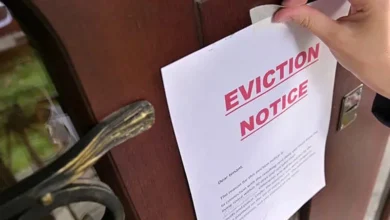Buying Property in the UK: What Your Solicitor Should Be Doing (But Might Not)
Buying a home or property in the UK is a big and important decision. Most people hire a solicitor (a legal expert) to help with the process because buying property involves many legal steps. But sometimes, solicitors don’t do everything they should, which can cause problems or extra costs later.
This article will explain what your solicitor should do when you buy property in the UK, what might get missed, and how you can protect yourself.
What Does a Solicitor Do in a Property Purchase?
A solicitor’s main job is to handle all the legal work connected to buying property. This includes:
-
Checking the property’s legal status to make sure the seller has the right to sell it
-
Investigating any problems or debts linked to the property
-
Preparing and reviewing contracts between you and the seller
-
Managing the transfer of money safely
-
Registering the property in your name at the Land Registry
-
Giving you legal advice throughout the process
Important Tasks Your Solicitor Should Do (But Sometimes Doesn’t)
Here are some key duties your solicitor must carry out carefully. If they miss these, you could face legal or financial problems later.
1. Title Search: Confirming Ownership and Rights
Your solicitor should check the title register to make sure the person selling the property legally owns it. They also check if there are any restrictions or problems like:
-
Existing mortgages or loans on the property
-
Legal rights other people might have (like neighbours or companies)
-
Boundaries and land disputes
If this step is not done properly, you could buy a property with hidden problems.
2. Local Authority Searches: Checking Local Plans and Risks
Your solicitor must request several searches from the local council, including:
-
Planning permission checks: Has the current owner made changes to the building legally?
-
Future developments: Are there plans to build roads, buildings, or other projects nearby?
-
Environmental searches: Is the property at risk of flooding, contaminated land, or pollution?
-
Highways and road proposals: Will the property be affected by new roadworks?
Missing these searches can lead to surprises, like new construction disrupting your home or flooding risks.
3. Checking for Debts and Charges on the Property
Your solicitor will check if the property has unpaid debts, such as:
-
Property taxes (called council tax)
-
Utility bills (water, electricity, gas)
-
Service charges (if you buy a flat)
-
Ground rent payments
These debts can sometimes become your responsibility if not dealt with before purchase.
4. Reviewing and Explaining the Contract
Your solicitor should carefully check the sale contract and explain it to you clearly. The contract includes:
-
The sale price and payment terms
-
What is included in the sale (e.g., fixtures, fittings, appliances)
-
Any special conditions or restrictions (such as rights of way or lease terms)
Make sure you understand everything before signing.
5. Handling the Exchange of Contracts
Once both you and the seller agree, your solicitor will arrange the exchange of contracts. This is when the sale becomes legally binding. Your solicitor should:
-
Ensure all checks and searches are done before exchange
-
Confirm you have the money ready for deposit and final payment
-
Explain the legal consequences of exchange, including cancellation fees if you back out
6. Completion and Money Transfer
On the completion date, your solicitor will:
-
Transfer the remaining money to the seller
-
Make sure you get the keys to the property
-
Pay any fees such as stamp duty (property tax) and Land Registry fees
-
Register the property in your name at the Land Registry office
What Can Go Wrong If Your Solicitor Skips Steps?
-
Hidden debts or charges: You might pay for debts that belonged to the previous owner.
-
Unnoticed planning issues: You could buy a property with illegal work done on it or near unwanted developments.
-
Disputes over property boundaries: This might lead to arguments with neighbours.
-
Delays: If the solicitor delays paperwork or payments, you might lose the property or pay extra costs.
-
Poor communication: You may not know what’s happening, leading to stress and confusion.
How to Make Sure Your Solicitor Does Their Job
-
Ask for regular updates: Your solicitor should keep you informed at every step.
-
Check their experience: Use a solicitor who specialises in property law and has good reviews.
-
Understand their fees: Ask for a clear quote and explanation of what you will pay.
-
Ask questions: Don’t be afraid to ask what searches have been done, if there are risks, and what happens next.
-
Get everything in writing: Keep copies of all emails, contracts, and documents.
Final Tips for Buying Property in the UK
-
Start looking for a solicitor early, even before you make an offer.
-
Be patient and don’t rush. Buying property takes time, and skipping checks can cause big problems.
-
If you don’t understand something, ask your solicitor to explain in simple terms.
-
If you feel your solicitor is not doing enough, consider getting a second opinion or changing solicitors.
Round Up
Buying property in the UK is complicated and full of legal steps. A good solicitor should carefully check every detail to protect you. But some solicitors may miss important tasks or rush through the process. Knowing what your solicitor should be doing will help you avoid problems and make your property purchase smooth and safe.



